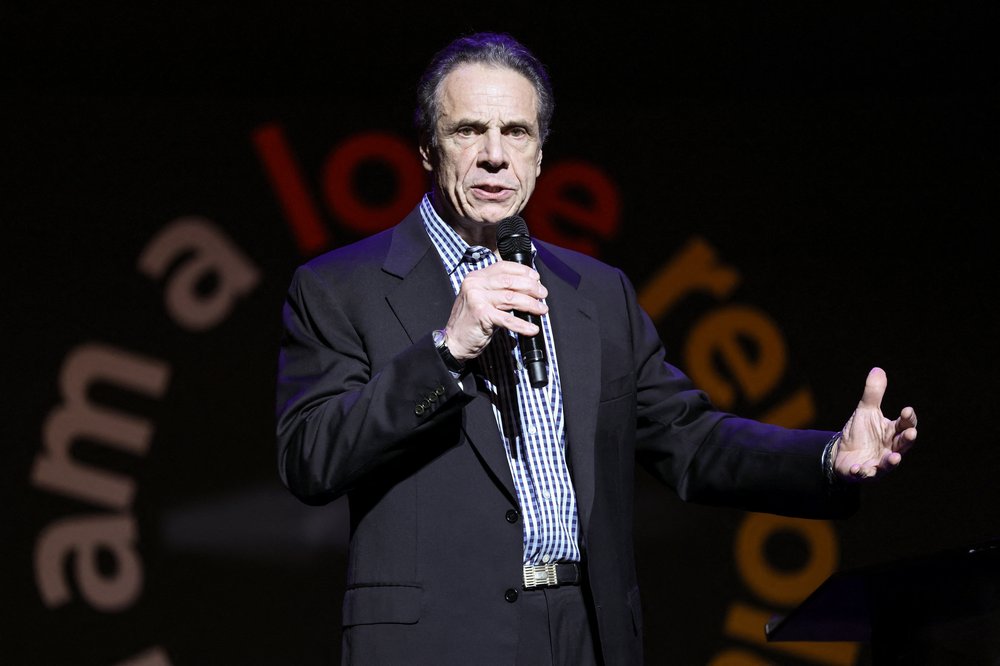What the polls actually tell you about the NYC mayoral race
May 15, 2025, 11 a.m.
A recent Marist poll shows former governor Andrew Cuomo still at the front of the pack. Here's what to make of the numbers.

This column originally appeared in The Politics Brief, our weekly newsletter on the people, power and policies that shape New Yorkers' lives.
Sign up to get the full version where you can ask questions, share news tips and weigh in on the conversation. Hits inboxes on Wednesdays.
A recent poll is giving New Yorkers a picture of the race with less than six weeks to go until New York City’s mayoral primary, and it’s… a lot like the picture they had before.
The highly anticipated Marist poll found Andrew Cuomo to be the front-runner, with Zohran Mamdani a distant runner-up. According to the poll, 37% of likely Democratic primary voters say Cuomo is their first choice, and 18% pick Mamdani. The remainder of the field has single-digit support. But Lee Miringoff, the director of the Marist University Institute for Public Opinion, cautioned that the race, which Cuomo has led comfortably since he entered, could still shift in the final month-and-a-half before the June 24 primary.
“There is room for someone else to make a run late but that’s going to require taking away support from Cuomo because right now he’s on a successful path,” Miringoff said.
The numbers suggest that to win, a candidate would have to draw support from Cuomo. He said the debate could be the single best opportunity for someone to do that.
Marist surveyed nearly 3,400 likely voters in the first week of May. The new poll shows Cuomo winning by reaching over 50% of the vote after five rounds of ranked-choice tabulations.
But while polls can provide insights into the state of the race — including which candidates have momentum — experts say it’s important to remember that they aren’t perfect predictions of the outcome.
“The timing of the poll matters,” said Basil Smikle, a public policy professor at Columbia University who served as the campaign manager for 2021 mayoral contender Ray McGuire. “No matter how good they are, they are still a snapshot in time.”
In 2021, Andrew Yang was the front-runner in multiple polls up until the final stretch, but he wound up finishing fourth. During that election season, Yang fell behind Eric Adams in a poll for the first time in early May. Once early voting got underway, a Marist poll found Adams in first place followed by Kathryn Garcia and Maya Wiley. That proved to be the final placement in the election.
The latest Marist poll shows that after Cuomo (37%) and Mamdani (18%), 9% of likely Democratic voters support City Council Speaker Adrienne Adams. City Comptroller Brad Lander is statistically tied for third place with 8%, because the gap between him and Adams is smaller than the poll’s 2.6% margin of error.
Here are some things to consider when looking at the polls.
Not every poll should be judged equally. Marist, Siena, Quinnipiac and Emerson are among a select group of pollsters that meet the New York Times’ criteria for reliability. Polls that come from partisan organizations like Data for Progress or are tied to campaigns aren’t necessarily inaccurate, but should be treated with skepticism.
Methodology matters. Factors to consider are the number of people surveyed (the more the better); the demographic breakdown of those surveyed (whom the pollster expects to go vote on Election Day); how people were polled (live interview over the phone, online polls delivered through text messages); and the margin of error.
They matter to campaigns. Expect the candidates to promote a positive poll and downplay a negative one. But behind the scenes, polling may trigger new campaign strategies as well as conversations with donors, according to Smikle. “Polling can help determine viability, which certainly has an impact on fundraising.” he said.
Like the campaigns they measure, the polls’ accuracy will ultimately be judged in retrospect — when there’s a winner.
Listen here
We want to hear from you
Do polling numbers affect whom you choose to support in local elections? We'll share responses in next week's newsletter. (Sign up!)
This week in New York politics
- Having trouble figuring out who you want to rank on your ballot for mayor? Take the Meet Your Mayor quiz, a collaboration between Gothamist and THE CITY. Find your best match here.
- NYC’s Campaign Finance Board awarded mayoral candidate Andrew Cuomo $1.5 million in public matching funds, but also penalized him $622,056, and he’s now risking another penalty. Here’s why.
- Mayor Adams is establishing a new office devoted to combating antisemitism across the five boroughs. Read more about it.
- Liberals and conservatives don’t agree on much these days, but in New York, they’re joining forces to regulate food additives. Here’s how.
- Before it emerged in the indictment of Mayor Adams’ top aide, the Glass Ceiling hosted a who’s who of local elected officials as it was fighting for a liquor license. Read more.
- A New York state panel studying reparations for slavery was granted an 18-month extension to submit a written report of its findings and recommendations. Here’s why.
- This new website allows New Yorkes to dig into the records of over 1,000 judges across the state. Check it out.
- Five New Jersey Democrats running for governor laid out their plans for opposing President Trump’s immigration enforcement policies at a forum on Monday in Newark. Here’s what they said.
- Listen: Last week, President Trump said that he would place a 100% tariff on movies made outside the United States. Brian Lehrer spoke to people who work in the industry about the plan. Listen here.